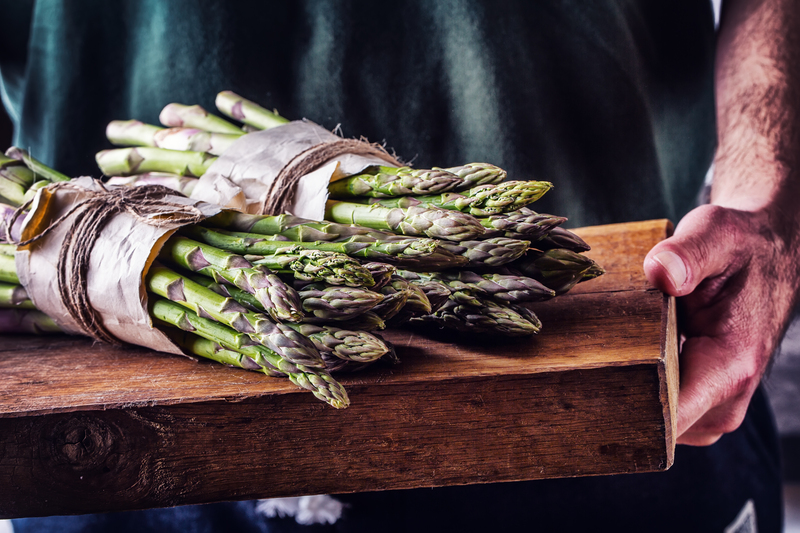Sustainable Gardening: Recycled Rainwater Benefits
Posted on 14/04/2025
Sustainable Gardening: Recycled Rainwater Benefits
Introduction
Sustainable gardening is becoming increasingly popular as more people recognize the importance of preserving our natural resources. One of the most effective methods to achieve sustainability in gardening is through the use of recycled rainwater. In this article, we will explore the benefits of using recycled rainwater in your garden, provide some useful tips, and discuss the pros and cons of this eco-friendly practice.

What is Recycled Rainwater?
Recycled rainwater refers to the practice of collecting and storing rainwater for future use in gardening and other outdoor activities. This water can be collected from roofs, gutters, and other surfaces, and then stored in tanks or barrels. The stored rainwater can be used for watering plants, reducing the dependency on municipal water supplies, and promoting environmental sustainability.
Environmental Benefits
Using recycled rainwater in your garden provides several environmental benefits:
1. **Reduces Water Waste**: Collecting rainwater helps to minimize the amount of water that runs off into storm drains, reducing water waste.
2. **Conserves Natural Resources**: By using rainwater for gardening, you reduce the demand on municipal water supplies, thereby conserving valuable natural resources.
3. **Prevents Erosion and Flooding**: Properly managed rainwater collection systems can reduce soil erosion and prevent flooding by controlling the amount of water that enters storm drains and waterways.
Cost Savings
One of the most significant advantages of using recycled rainwater in your garden is the potential for cost savings:
1. **Lower Water Bills**: By relying on harvested rainwater, you can substantially lower your water bills, especially during peak gardening seasons.
2. **Reduced Infrastructure Costs**: Communities can benefit from fewer infrastructure costs associated with water treatment and distribution when more people adopt rainwater harvesting practices.
Healthier Plants
Rainwater is often considered superior to tap water for plant growth:
1. **Chemical-Free**: Rainwater is free from the chemicals and additives commonly found in municipal water supplies, making it healthier for your plants.
2. **Balanced pH Levels**: Rainwater typically has an ideal pH level for most plants, promoting better growth and nutrient absorption.
3. **Nutrient-Rich**: Rainwater often contains trace amounts of essential nutrients that can promote healthier plant development.
Tips for Implementing Recycled Rainwater in Your Garden
Here are some practical tips to help you get started with using recycled rainwater for gardening:
1. **Set Up Rain Barrels**: Install rain barrels beneath downspouts to collect rainwater efficiently. Ensure they are covered to prevent mosquito breeding.
2. **Use a Gravity-Feed System**: A gravity-feed system can simplify watering by allowing rainwater to flow directly to your garden from the storage tank without the need for pumps.
3. **Regular Maintenance**: Clean your rainwater collection system and storage tanks regularly to prevent blockages and contamination.
4. **Optimize Watering Schedule**: Use a soaker hose or drip irrigation system to maximize the efficient use of rainwater.
Pros and Cons
While recycled rainwater offers numerous benefits, it's important to consider both the advantages and disadvantages:
**Pros:**
- Reduces reliance on municipal water supplies.
- Decreases water bills.
- Promotes environmental sustainability.
- Provides chemical-free water for plants.
**Cons:**
- Initial setup costs for rainwater collection and storage systems.
- Requires regular maintenance to prevent contamination and system blockages.
- Limited supply during dry seasons.

Takeaways
The use of recycled rainwater for gardening is a practical and sustainable approach that offers multiple environmental, economic, and plant health benefits. By incorporating rainwater harvesting systems into your gardening practices, you can contribute to water conservation, reduce your water bills, and promote healthier plant growth.
Conclusion
Sustainable gardening practices like using recycled rainwater are essential for preserving our natural resources and promoting a healthier environment. While there are some initial setup costs and maintenance requirements, the long-term benefits for both your garden and the environment make it a worthwhile investment. By adopting recycled rainwater usage, you can enjoy a lush, thriving garden while contributing to a more sustainable future.












